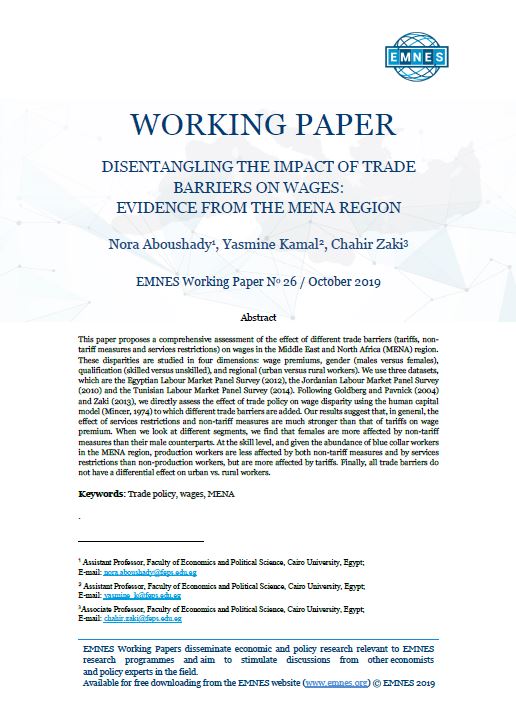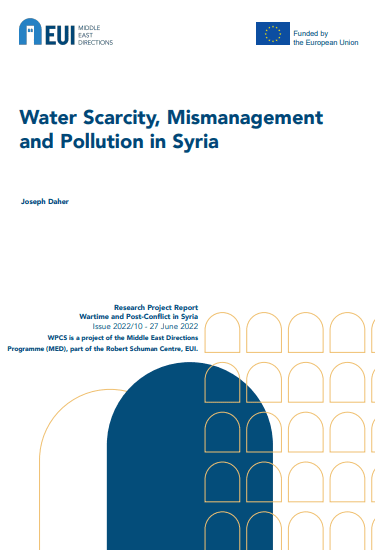EMNES Working paper 026 – Disentangling the impact of trade barriers on wages: evidence from the MENA region

This paper proposes a comprehensive assessment of the effect of different trade barriers (tariffs, non-tariff measures and services restrictions) on wages in the Middle East and North Africa (MENA) region. These disparities are studied in four dimensions: wage premiums, gender (males versus females), qualification (skilled versus unskilled), and regional (urban versus rural workers).
The results suggest that, in general, the effect of services restrictions and non-tariff measures are much stronger than that of tariffs on wage premium. When we look at different segments, we find that females are more affected by non-tariff measures than their male counterparts.
At the skill level, and given the abundance of blue collar workers in the MENA region, production workers are less affected by both non-tariff measures and by services restrictions than non-production workers, but are more affected by tariffs.
Finally, all trade barriers do not have a differential effect on urban vs. rural workers.
Latest Publications
































 Syria
Syria 



